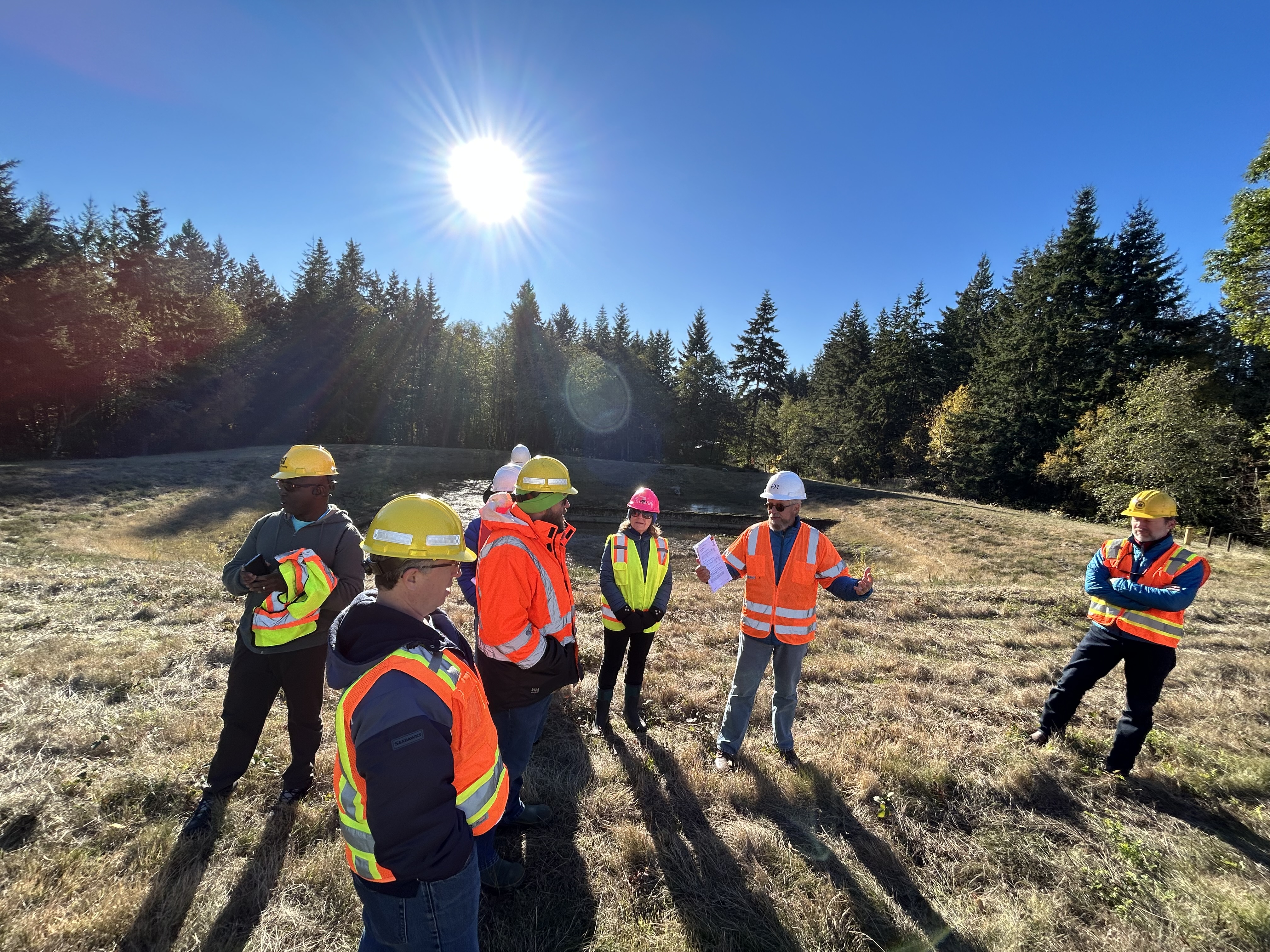Vashon Island compost expansion work
Project background
Over 35% of the waste landfilled each year in King County is organic material such as food and yard waste. Recycling organics creates many economic and environmental benefits including:
- Reducing the extraction of natural resources.
- Reducing carbon emissions from processing and shipping.
- Reducing toxins and GHG in the environment from landfilling.
Organic material can also be turned into compost, a valuable natural soil-enhancement.
Currently, households and businesses on Vashon don't have curbside organics collection. Some compost their own organics or haul it to the Vashon Recycling and Transfer Station. The material collected at the transfer station is transported by Cedar Grove to their Maple Valley facility.

Project description
In 2019, we partnered with Zero Waste Vashon, a volunteer group working to make Vashon a waste-to-resource community. Together, we are working to create a self-sustaining organics system on Vashon Island and help meet King County’s zero waste goal by 2030.
We have taken several steps since the project began, including:
- Holding scoping meetings
- Development of accurate feedstock numbers
- Reaching out to potential Island partners
- Investigating facility siting needs
- Conducting a community survey and feasibility study
- Informing community about ongoing developments via newspaper, web, e-newsletter, and social media
Next steps
King County is currently working on:
- Monitoring and responding to the 2024 update to the state Organics Management Law, which includes new food and yard waste collection requirements
- Exploring options for curbside collection
- Continuing with facility siting research
- Expanding the organics area at the Vashon Recycling and Transfer Station
- We’re planning improvements to the organics collection area at the Vashon Recycling and Transfer Station. The project is in the planning phase and the next step will be to secure consultants to design the improvements. Tentatively, we expect to hire a consultant late-2024.
- Planning a new Vashon Organics Processing Facility
- We’re moving ahead with planning for an organics processing facility on the island. Our next step is to issue a Request for Proposal (RFP) to evaluate potential partners interested in operating the facility. The selected partner will collaborate with us on the siting and design process. We anticipate issuing the RFP mid-2024.
As our work moves ahead, we'll continue to work with Zero Waste Vashon on community outreach. We will continue to provide opportunities for the public to share their thoughts.
Project schedule
Updated April 2024 (subject to change)
To date, several studies have been completed to determine the feasibility of this type of program on the island, as well as additional surveys and meetings with the community to share information and gain feedback on interest. In December, we received authorization to expand the compost collection area at the Vashon Recycling and Transfer Station and plan a new organics processing facility on the island. We will continue to update this schedule as we take new actions in the future.
| Date | Action taken |
|---|---|
| 2020 | In 2020, we hired HDR to study small-scale organics management options on Vashon. Their work assessed project viability and did not include facility siting. They looked into:
The findings are now available in two reports. Final Phase 1 looks at feedstock sources, technologies, and high-level facility sizing. Final Phase 2 shows the estimated costs and a greenhouse gas analysis for the recommended approach. |
| Early 2022 |
King County Solid Waste staff worked with Zero Waste Vashon and Comengage, a market research firm, to conduct a community survey in early 2022. The survey gathered input on organics collection, processing, and on-island compost use. |
| June 2022 |
In June 2022, King County Solid Waste staff, Zero Waste Vashon representatives and consultants from HRD presented to Vashon residents about the results of the community survey and feasibility study for processing organics on the island. Staff detailed next steps that the County would take in it's analysis and decision making and answered questions from residents. |
| July 2022 |
In July 2022, an internal siting study was completed by King County Solid Waste staff. The report identified two locations adjacent to a closed landfill which may be suitable for use. Each site is greater than one acre in area and has a slope less than 5%. A third option combines the two sites into approximately 2.7 acres. This provides a much wider area for development. |
| November 2022 |
In mid-November of 2022, the project consultant, employees from HDR, Zero Waste Vashon representatives and King County Solid Waste staff toured the proposed project site at the Vashon closed landfill. The HDR consultants inspected and discussed the physical attributes of the site, landfill installations, the adjacent storm drain and pond, proximity issues with the transfer station and the neighboring property of the site. |
| December 2023 |
The King County Council approved funding for expanding the organics collection area at the Vashon Recycling and Transfer Station and building a new Vashon Organics Processing Facility. |

 Translate
Translate